RUBE STUMP REMEMBERS APPLE FARM
IN 2024 LESS THAN A HALF DOZEN LIVE ON RUSH (APPLE FARM)
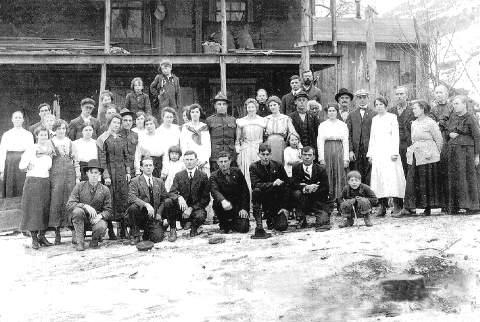
December 1918, the Ellsworth Stump House, center of Apple Farm
(L to R) First Row: Rex Dobbins, Leaford Witte, Ervin Stump,
Wayne Minney, Albert Gherke, Lum Witte, Elsworth Poling
Second Row: Delana Minney, Olive Burrows, Myrtle Vannoy, Willa Raybuck, Bid Marshall, Ermal Godfrey, Donnie Vannoy, Vena Poling, Oleta Weaver, Eda Stump, Russell Stump, Mary Tribbett, Susie Frame, Carl Stump, Bone Ratcliff (a well-known black man from Raccon Run, his head showing), Louise Smith, Billy Gherke, Robert Godfrey, Flora Stump, W.E. Stump, Ella Stump, Emma Reed, Mary Gherke
Third Row: Gay Stump, Charley Stump and son Alvin, Jess Vanhorn, Alvin Vannoy, far right Hoy Stump, right Garland Stump, Jerry Kendall
Forth Row: Roy Stump, Hoy Stump, Elbert Poling
(Photo courtesy of Bill Smith)
By Bob Weaver 2003
Rube Stump at 80, like many Calhoun folks we have written about, is a ball of fire. "I've had a fascinating life," he said, from being in the U. S. Navy in World War II to operating Stump Motors in Stumptown with his late brother Hugart, and later operating Stump's Ford-Mercury Garage in Glenville for many years.
Rube is right at home on his 518 acre farm on Rush, that stretches from Raccoon Run to Big Run. During our visit he re-created the now gone Village of Apple Farm, step-by-step.
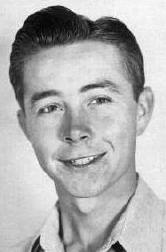 Rube Stump in World War II (left.)
Rube Stump in World War II (left.)
Besides once having his own airplane to lift out of the local river valleys, he continues his life-long interest in woodworking, beautifully crafted porch swings of all sizes, gun cabinets and ammunition boxes. He has made 126 porch swings, and is still turning them out. They are not expensive, $250 up.
"I have really enjoyed making the frames for all the pictures for the Calhoun High School alumni," which hang in the new Mount Zion school.
Three generations of Stump's have lived in his old Apple Farm house. Rube says the house was built about 1880, earlier occupied by his grandparents Ellsworth and Ella Stump Stump and his parents Sull and Treacy Jane Wilson Stump. All are descendants of the four Michael Stumps, a well-documented genealogical family.
At least 50 families orginally lived in the environs
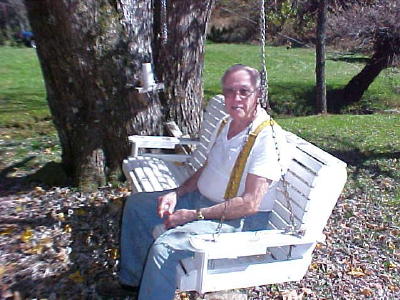
Rube is at ease at the old homestead
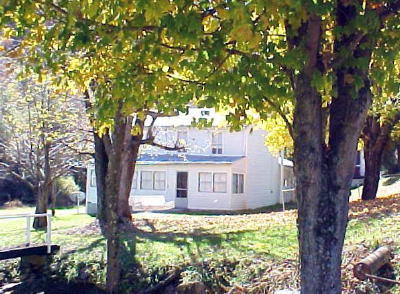
Three generations have lived in the Apple Farm house
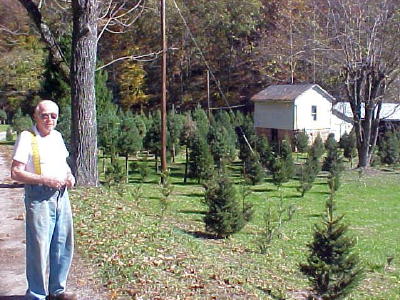
Rube gives a walking tour of village ghosts
The Stump family operated a store beside the house for many years, next door to the Herman Witte store.
The Stump house was the center of the Apple Farm village, which once had a post office, a casket shop, a grist mill and the Redmen and IOOF lodge halls. The two stores were operated by Rube's family and Herman Witte.
"I've been working on it for several years, trying to keep it from falling down," he said. Rube, not unlike his late mother Treacy Jane, collects and savors local history. His mother frequently wrote her remembrances of the community.
Rube's dad, Sull, was an oxen teamster and riverboat captain on the Little Kanawha, but left during the depression to work for Babcock and Wilcox, retiring to the farm in 1965 after 30 years. Treacy was postmistress for Apple Farm for 30 years.
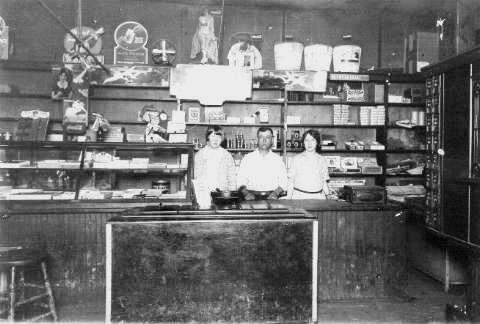
Herman Witte's Store, Apple Farm, about 1915
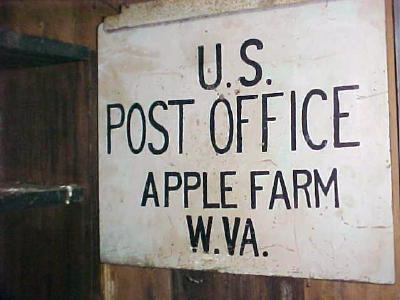
The Apple Farm Post Office sign
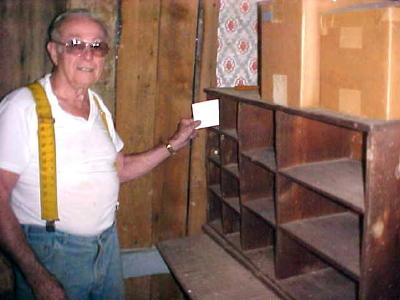
Post Office boxes used by Treacy Stump for 30 years

A 1930s lightbulb still burning. "I turn it on
for a few seconds at a time," said Rube
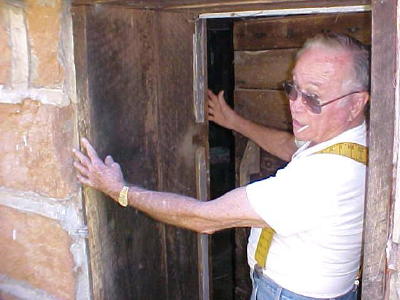
The cellar was double-walled and "built to work"
"I remember most of the old-timers in the holler," Rube said, recalling Bob Bennett, a member of the county court, whose crumbling house stands at the mouth of Rush; Blaine Minney, farmer; George Wilson, stonecutter and builder; Nathaniel Dobbins, farmer; Charley A. Stump, farmer; Okey Dobbins, the first Apple Farm postmaster; Granville Reed, farmer; Herman Reed, farmer; Dwight Wilson, Sand Ridge storekeeper; Charley B. Stump, Hope Gas and Elza Wilson, mail carrier.
There were two one-room schools connected with Rush, one on the upper end and one on the lower end.
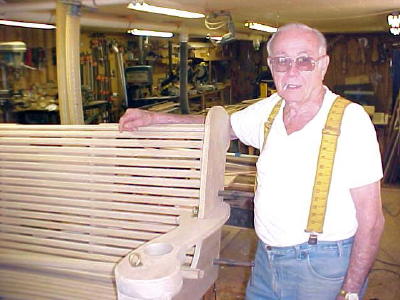
Some of the most beautiful porch swings
you'll ever see, from small to large and fancy
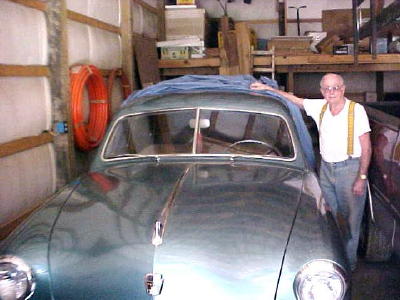
Rube's 1950 Ford classic he has maintained for many years
Rube said "Apple Farm is a much quieter place than it used
to be," which could not be said for most places in America.